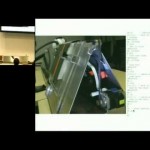![]() redletterdave writes “Mark Zuckerberg, Sergey Brin and Yuri Milner have teamed up to create The Breakthrough Prize in Life Sciences Foundation, which now offers the most lucrative annual prize in the history of science: A $33 million pot to be split among 11 people, with individual rewards worth $3 million apiece. Comparatively, the monetary value of the Nobel prize is just $1.1 million. ‘Our society needs more heroes who are scientists, researchers and engineers,’ Zuckerberg said. ‘We need to celebrate and reward the people who cure diseases, expand our understanding of humanity and work to improve people’s lives.'” Read more of this story at Slashdot.
redletterdave writes “Mark Zuckerberg, Sergey Brin and Yuri Milner have teamed up to create The Breakthrough Prize in Life Sciences Foundation, which now offers the most lucrative annual prize in the history of science: A $33 million pot to be split among 11 people, with individual rewards worth $3 million apiece. Comparatively, the monetary value of the Nobel prize is just $1.1 million. ‘Our society needs more heroes who are scientists, researchers and engineers,’ Zuckerberg said. ‘We need to celebrate and reward the people who cure diseases, expand our understanding of humanity and work to improve people’s lives.'” Read more of this story at Slashdot.
View article:
Tech Leaders Create Most Lucrative Science Prize In History
